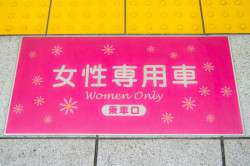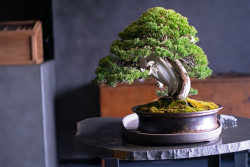
August 20, 2009
Drama Scene
I learned the hard way that at Yasukuni Shrine, no filmmakers are allowed
By Metropolis
Originally published on metropolis.co.jp on August 2009
There’s no question about it. Yasukuni Shrine instills a certain fascination. For some it’s morbid curiosity, for others it’s incredulity. But for documentary filmmakers like me, it’s simply a matter of wanting to know why so many people seem to think it’s so darn important.
You see, since March 2008, I have been working on my first feature-length documentary. It’s called China: The Rebirth of an Empire. It’s about China’s 21st-century re-emergence as a great world power, and what that is going to mean for all of us. One of the places we visit in the film is Japan. You know, Japan. The world’s number two economy. Number one in Asia. About to be replaced in that regard by China. We were wondering how the Japanese felt about this, and if they were worried that China might still be harboring some resentment over that little incident that they don’t teach very much about in public schools, namely World War II.
Having spent some time in both China and Korea, I knew that there was a place called Yasukuni Shrine that was supposedly much reviled by the victims of Imperial Japan. Several Class A war criminals were enshrined there (whatever that meant), while various prime ministers continued to have the gall to visit. A little sore spot. Cause for diplomatic friction. National outrage. Revenge. Sounds perfect for a movie!
So my crew and I get our gear, including a heavy tripod, camera and a boom mic with one of those big fuzzy things on the end that looks like a giant cattail. Fantastic. This should be interesting. We arrive at the shrine. The weather is good; there are loads of tour groups with people speaking what sounds like Chinese and Korean—impassioned interviewees!
I recall there was a documentary that came out recently called Yasukuni. I heard that it was pretty well received and that, contrary to a smear campaign, it was supposed to be pretty objective. In fact, the guys at Yasukuni Shrine—the guys in charge—were actually pleased with it. They thought it told their side of the story, although I also heard that when it first came out, they were pretty angry and that they tried to block its release. But they were happy now, and that’s what mattered.

Illustration by Eparama Tuibenau
With that in mind, my crew and I marched right up to the front of the shrine, set up the tripod, and extended the boom (with the big fuzzy thing attached). I was just about to yell “Action” when I heard that unmistakable “What the $#!% do you think you’re doing!?” (Even though this was spoken in Japanese, “What the $#!% do you think you’re doing!?” sounds pretty much the same in any language.) It was the guard. It seems we didn’t have permission to shoot there. Permission? But we thought this was a public space.
Actually it’s not. That’s a big misconception about Yasukuni. Despite the fact that its always in the news, despite the fact that prime ministers visit it on a regular basis, despite the fact that Class A war criminals are enshrined there (I’m still not sure what that means), and despite the fact that anyone can walk in, it’s actually private property. This fact is conveniently used to kick out pretentious wannabe Spielbergs like ourselves.
“But wait!” I say. “We are students, and we aren’t here to defame the shrine. Actually, we want to show that the whole controversy is overblown.”
We are told that we have to go speak to the director. I give him the same pitch, along with my business card. He asks what the movie is about. Well, China and, you know, politics and foreign relations. Politics? China? That has nothing to do with us! We’re a private shrine. Apolitical. We had a problem in the past with a filmmaker like you, claiming to be a student and then releasing an entire documentary about us without our permission. We can’t have that again. Get out!
And with that, we got the boot. Tripod, camera and boom mike with the big fuzzy thing and all.
About a year later, I had a chance to meet the assistant director of Yasukuni at a screening of his film. I told him about how we got thrown out while trying to shoot our own movie, because of some unnamed predecessor who, like us, thought that he didn’t need permission. After a little pause and a sheepish grin, he replied, “Oh, yeah, sorry about that!”







